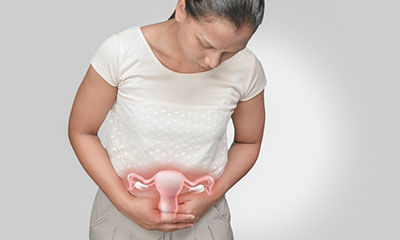How To Increase Endometrial Thickness
I have been trying for pregnancy since last month. This month's period date is may 5 and I am having 30 days cycle I wen ...
Ask Free Question
Hi. Your usg is normal and endometrium is also good for day 6 of periods. Thyroid needs control and since you have started medicine repeat tsh after 6 weeks to know if thyroid is controlled. If not dose will be increased. Till then you keep trying and take folic acid also.
I have to undergo ivf embryo transfer, my lh is 18.5 and estradiol is 24.6 in day 2 and lh is 24.6 and estradiol is 52 i ...
Ask Free Question
Hi, for frozen embryo transfer all these rests are not relevant. Any follicle is growing in either of your ovaries? Ultrasound findings will give better understanding. You need to wait for endometrial thickness to increase. If follicle is growing. We to first I induce ovulation and then plan for transfer.
I am having periods since 9 jan n they are normal periods which have not stopped till now. I was given norethisterone ta ...
Ask Free Question
Hi, undergo an u/s scan of the pelvis to assess the endometrial thickness. If it is more than 15-20 mm thick, I advise you to undergo dd&c.
Does the uterus wall thickens when 8 weeks pregnant? I wanna know as I got an abdomen ultrasound when I was having pregn ...
Ask Free Question
The normal thickness of the endometrium changes throughout a person’s life, from childhood, through to sexual maturity, fertile years, and after menopause. Medicalnewstoday uses cookies to improve your experience and to show you personalized ads. Privacy policy. More information what to know about endometrial thickness medically reviewed by valinda riggins nwadike, md, mph — written by danielle dresden on november 19, 2019 normal thickness measurement causes of thin or thick lining symptoms treatments seeing a doctor outlook the endometrium is the lining of the uterus. It is one of the few organs in the human body that changes in size every month throughout a person’s fertile years. Each month, as part of the menstrual cycle, the body prepares the endometrium to host an embryo. Endometrial thickness increases and decreases during the process. Two hormones, estrogen and progesterone, prompt these cycles of endometrial growth and its shedding through menstruation if a pregnancy does not develop. In this article, we look at the normal range for endometrial thickness, causes of changes, and when to see a doctor. Normal thickness a healthcare provider may measure the thickness of the endometrium with an ultrasound. The normal thickness of the endometrium changes throughout a person’s life, from childhood, through to sexual maturity, fertile years, and after menopause. In imaging tests of young females who have not yet begun menstruating, the endometrium is present but smaller than it will be later in life. According to the radiological society of north america (rsna), the endometrium is at its thinnest during menstruation, when it usually measures between 2–4 millimeters (mm) in thickness. The first half of the proliferative phase starts around day 6 to 14 of a person’s cycle, or the time between the end of one menstrual cycle, when bleeding stops, and before ovulation. At this phase, the endometrium begins to thicken and may measure between 5–7 mm. As the cycle progresses and moves towards ovulation, the endometrium grows thicker, up to about 11 mm. About 14 days into a person’s cycle, hormones trigger the release of an egg. During this secretory phase, endometrial thickness is at its greatest and can reach 16 mm. Pregnancy endometrial thickness is important in pregnancy. Healthcare experts link the best chances for a healthy, full-term pregnancy to an endometrium that is neither too thin nor too thick. This allows the embryo to implant successfully and receive the nutrition it needs. The endometrium gets thicker as the pregnancy progresses. Menopause the rsna also state that in healthy postmenopausal people, the endometrium typically measures about 5 mm or less. How to measure ultrasound is the most common way to measure the thickness of the endometrium. It is the method that healthcare providers use first, especially if an individual has reported abnormal vaginal bleeding. When ultrasound is not suitable, often due to the position of a person’s uterus or other health conditions, doctors use mri. Causes of a very thin or thick endometrial lining the thickness of the endometrium changes during a person’s menstrual cycle, but other factors can prompt changes as well. One of the more common causes of changes in endometrial thickness is pregnancy. Women who are having an ectopic pregnancy or who are less than 5 weeks pregnant may show signs of a thickening endometrium. Cancer of the endometrium or the ovaries is one of the most severe conditions that can lead to an increase in endometrial thickness. According to the american cancer societytrusted source, endometrial cancer is the most common cancer affecting a person’s reproductive systems. Developing more often in white people than african american people, endometrial cancer is rare in females under 45. The average age at diagnosis is 60. Other factors contributing to a greater thickness of the endometrium include: obesity hormone replacement therapy (hrt) tamoxifen chronic high blood pressure endometrial polyps diabetes scar tissue endometrial hyperplasia.
I have been prescribed folic acid, multivitamin, aspirin estrogen (primibet 2 mg twice a day) from day 2 of cycle till d ...
Ask Free Question
After taking hormonal medicine you will have spotting or some people will have mid cycle spotting after completion of your treatment if you wonât get periods then undergo urine test.
I'm 23 years old and I have pcod problem uterus is anteverted normal in size measuring 64 ×34 ×38 mm endometrial thickne ...
Ask Free Question
There is no mention of day of cycle and whether you have taken letroz or not. If the report is on d17-20, chances of conception are less. Consult your specialist about increasing the ovulation induction dose next cycle.
I took second dose vaccine on second day of my period. Today is 10th day but still bleeding. Doctor suggested to take tr ...
Ask Free Question
If bleeding wonât stop take hormonal tab if still your problem continues then undergo blood test.
Hi doctor, I was an exogenous cushing's patient due to which I gained lots of weight. I currently weigh 78 kilos and my ...
Ask Free Question
Hi don't leave your hope on getting this corrected vitamin d3 deficiency hypothyroidism hypertension and depression obesity everything is interlinked start regularly working out and start reducing the the dosage of steroid as soon as you could find a change. Most people are found with single digit vitamin d3.
I have pcos. My last period was exactly a year ago on taking meprate for 5 days. Since it's been a year, my gums recomme ...
Ask Free Question
while increasing weight and also while reducing weight the hormones tend to shuffle down hence that can be chances of having regular period and withdrawal bleeding
I have pcos and 19 old. I have been prescribed krimson 35 but I frequently forget to take it and have a very irregular d ...
Ask Free Question
Not taking it regularly will lead to irregular periods and defeat the purpose of taking the tablets. Fix a time for taking the tablets, maybe just before bedtime.







